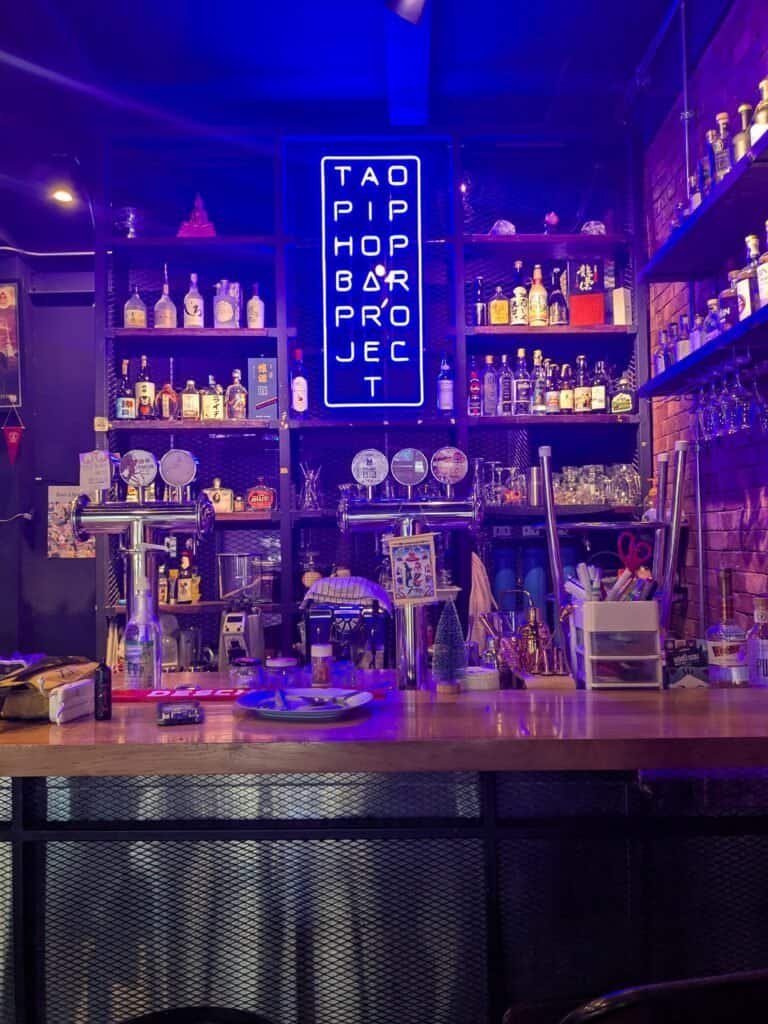On January 15th, member of Parliament Taopiphop Limjittrakorn, a.k.a. Tao, posted on Facebook that his bill to update and amend Thai alcohol production limits had passed the Thai House. Translated into English, it is a revision to the Excise Tax Law.

Almost 8 years ago to the day, Tao was arrested for brewing beer. Now he is an MP leading an effort to see change in the same Thai laws that put him in jail for a couple days.
The following is based on an interview with Tao at his bar, Taopiphop Bar Project, in Thonburi Bangkok.
Q: The bill passed the house of Parliament, basically unanimously, but it still needs to pass the Senate. Will there be a fight to get it through?

While pouring a beer from the taps at his bar, Tao responds rather easy-going “It should be smooth, we’ve already spoken to many Senators.” Once it passes the Senate, then the law will be enacted in 180 days. We could see it go into effect in less than six months.
UPDATE: the Senate passed the bill on March 10th
He added that to support Thai industry, every lawmaker he has spoken to agrees that this should have been done a long time ago. It helps that the law doesn’t need to be amended, but instead the Treasury can change policy.
There is some real inertia in government, so sometimes you just need to push people to get things changed.
- THE BILL
- Key points of the bill include
1. Brew pubs being able to sell beer to other locations
2. Local alcohol producers not limited to 5hp (horsepower; energy consumption) for their first year. Can start at 50hp.
3. Distilleries can produce colored spirits without a separate license.
Everyone sees what they want in the recent legislation. For brewers, it’s a beer bill for the local breweries; for distillers, it’s about producing different alcohols; for lao khao* makers, it is about relieving high tax burdens.
Overall the legislation is mostly about permits: to get rid of unnecessary red tape and to find ways to support the small producers. To take it even further, Tao would like to see different tax levels based on quantities of production, so the smaller companies have smaller tax burdens. Additionally, there could be tax breaks or other incentives to use Thai agricultural products instead of relying on imported grains.
This is just the first door to unlock, but over time Tao looks towards companies just needing one license to produce local beer and spirits.
*Lao Khao – a clear rice whiskey; often cheap and strong.
Q: 414 MPs voted in favor of the bill, and none opposed. Really? No opposition?
As to opposition to the bill, Tao explained that even people that are concerned about alcohol as a “moral vice” recognize that this legislation is not about getting people to drink more. The change is about driving economic growth; supporting small and local businesses is about helping the economy, not flooding the market with cheap alcohol.
Though to be fair, there is concern about the unregulated production and distribution of lao khao in the countryside.
More to do
This is a start, but there are still questions and hurdles to changing other parts of Thailand’s alcohol laws, including loopholes in advertising, and the daily 2-5pm prohibition of alcohol sales. Changes to that would go against vested interests, though. For example, two of the main opponents to repealing the daily 3-hour break in sales are doctors advocating for people’s health, and police officials that would be deprived of collecting money through “fines” and such.
Despite these hurdles, there are plans for a bill in parliament next month to address those issues, though it is unclear how much support it has.
Results to look for
Journalists have asked Tao what changes we are likely to see, and he responds that maybe in 10 years, the small and local producers will have a 10% share in the market. It will give more people a chance to get a piece of the pie.
More immediately, Tao foresees:
“We will see an explosion of beers and breweries to open, though many will not last long – [Brewing] Beer is hard, the law doesn’t need to make it harder.”
Something else he sees on the horizon is the marked increase of sato* availability. He explained that there is young/fresh sato, and there is the old/aged sato. He expects there to be an explosion of young sato because the producers will not be limited by horsepower, so they will be able to pasteurize their product.
*Sato – a clear fermented rice wine; similar to sake and often served chilled like a glass of wine.


